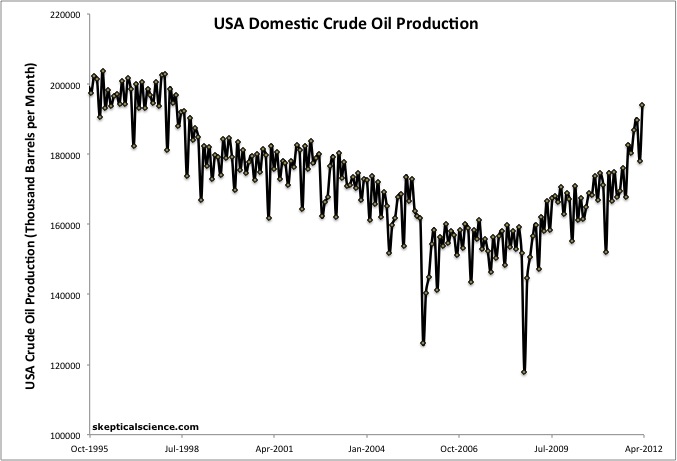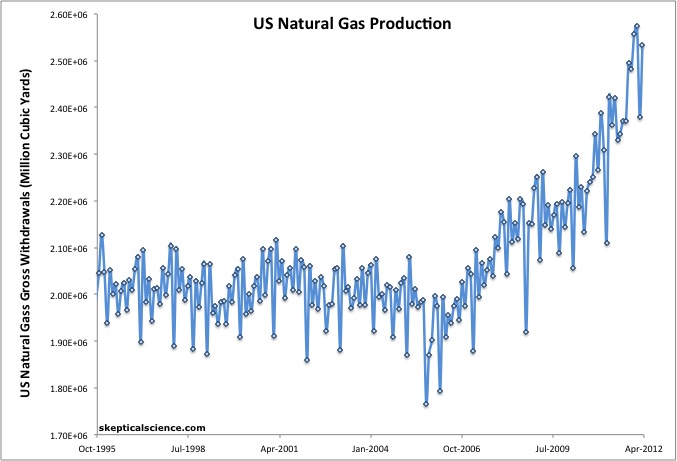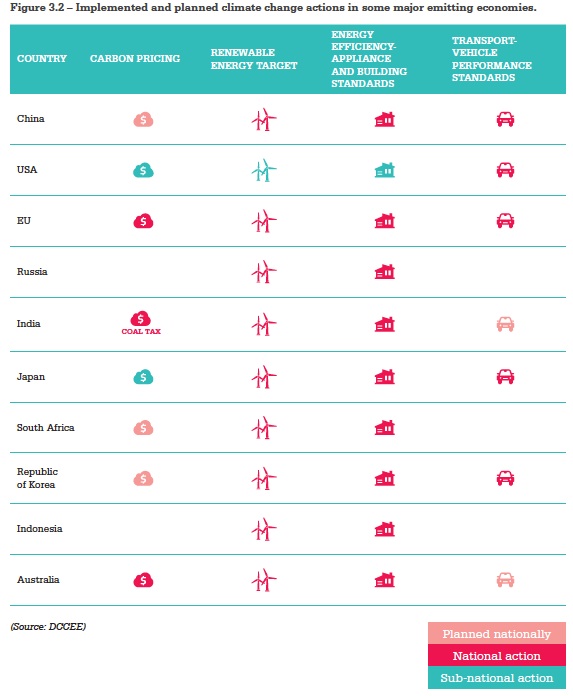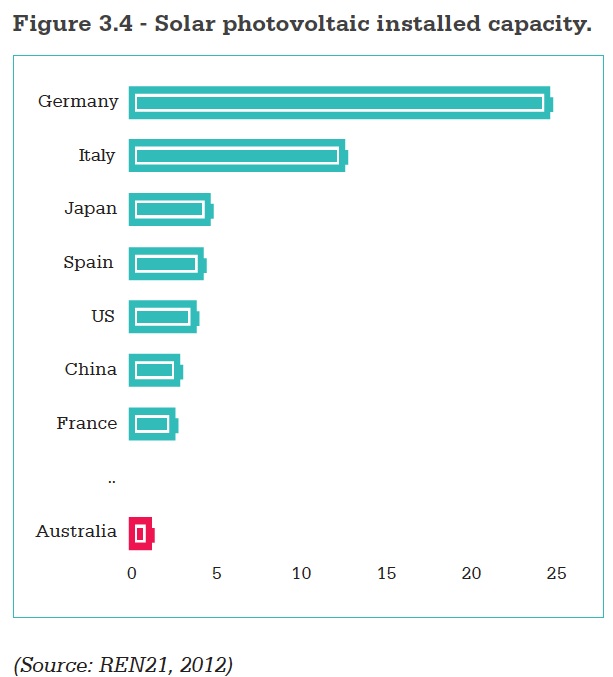Obama, Romney, and Various National Climate Policies Around the Globe
Posted on 12 September 2012 by dana1981
We have often looked at the importance of reducing human greenhouse gas emissions as much and as quickly as possible, based on a prudent risk management approach, most recently with Richard Somerville's discussion on irreversibility and urgency and also examining what our failure to do so would mean for the future global climate.
With the US presidential election just under 2 months away, and the President being the most important figure in determining American climate policy, it's worthwhile to examine what the two main political party's candidates' policies would mean for the climate if they are elected. Unlike certain other purported climate science blogs, we are not in the business of endorsing political candidates, and our discussion (and the discussion in the ensuing comments) will focus solely on the climate implications of the proposed policy plans. We will also examine the climate policies from various other countries in order to get a sense of where we're at and where we're heading in terms of global greenhouse gas emissions.
President Obama's Policies
You can read about the incumbent's energy and climate-related policies here. President Obama's energy page does not get off to a climate-friendly start, with the top of the page prominently featuring his steps to increase American oil production. Obama's presidency started during an economic recession, when crude oil production was at its lowest level in decades; it has now reached levels higher than at any time during the George W. Bush presidency (Figure 1).
Figure 1: US domestic oil production data from the US Energy Information Administration.
However, the increase in US domestic oil production is not terribly important from a climate perspective, because oil prices are set by the global market, and US production is too small to make a noticeable difference in those prices. The demand side is far more important than the supply side in this respect, and on that issue the Obama Administration has done very well, having implemented the toughest fuel economy standards for passenger vehicles in U.S. history, requiring an average performance equivalent of 54.5 miles per gallon by 2025.
President Obama's energy page also highlights his efforts to transition American passenger transportation to plug-in hybrid and fully electric vehicles as well as biofuels. Regarding building energy efficiency,
"Since October 2009, the Department of Energy and the Department of Housing and Urban Development have jointly completed energy upgrades in more than one million homes across the country....Through the President’s Better Buildings Challenge, we are working to improve the energy efficiency of commercial buildings by 20 percent by 2020."
President Obama has also encouraged renewable energy implementation and a clean energy standard, created programs to encourage alternative energy research and development, and called for an end to tax breaks for the oil and gas industry. He has also lead by example by signing an executive order on Federal Leadership in Environmental, Energy and Economic Performance. This executive order set sustainability goals for Federal agencies in becoming more energy efficient and reducing reliance on fossil fuels, for example requiring a 30% reduction in vehicle fleet petroleum use by 2020, and a 2030 net-zero-energy building requirement.
Thus from an energy policy standpoint, other than excessively encouraging increased production of fossil fuel energy, President Obama's policies have been quite good with regards to greenhouse gas emissions. His climate policy has been similar. The USA did seem to put forth a good effort at the Copenhagen international climate conference, President Obama's Environmental Protection Agency (EPA) has begun regulating greenhouse gas emissions, and he would have signed a national carbon cap and trade system into law, had it not been blocked in the Senate.
However, President Obama has very rarely mentioned the words 'global warming' or 'climate change' in public. While his policy on the issue has been quite good, his leadership has not. That being said, he did take a step in the right direction on the issue during his 2012 nomination acceptance speech, saying:
"...my plan will continue to reduce the carbon pollution that is heating our planet – because climate change is not a hoax. More droughts and floods and wildfires are not a joke. They’re a threat to our children’s future."
Mitt Romney's Plan
Republican presidential nominee Mitt Romney recently released his energy plan (also see a short summary here), which aims to achieve "North American energy independence by 2020." The plan is rather lacking in details, but Romney appears to have followed Fred Singer's advice to focus almost exclusively on fossil fuel production. Romney's plan focuses primarily on opening up virtually all federal lands to fossil fuel drilling, though as we have noted, domestic oil production is already at its highest levels in over a decade, and domestic natural gas production is at its highest levels ever, mainly due to the shale gas/hydraulic fracturing (fracking) boom (Figure 2).
Figure 2: US domestic natural gas production data from the US Energy Information Administration.
Romney's policy paper claims:
"President Obama has intentionally sought to shut down oil, gas, and coal production in pursuit of his own alternative energy agenda"
This is clearly untrue based on the data show above. However, the fact that Romney criticizes attempts to pursue an "alternative energy agenda" highlights his own exclusive focus on fossil fuels. Romney also proposes to dramatically reduce regulations on fossil fuel drilling - a policy which poses various environmental concerns, though they're not necessarily related to climate change.
Romney also promises to "Approve the Keystone XL pipeline." As we have previously discussed,
"Building the Keystone pipeline to exploit an unconventional source of fossil fuels is a step in the wrong direction"
At this point it remains unclear whether the Obama Administration will ultimately allow the construction of the Keystone pipeline; so far they have delayed it, but have not rejected it. However, Romney has clearly placed this unconventional fossil fuel source higher on his energy policy priorities. In fact, his policy plan strongly criticizes the Obama Administration for supposedly rejecting the pipeline.
As noted above, in terms of oil the demand side is far more important than the supply side - from a climate perspective the proverbial drop in the bucket that Romney wants to add in terms of oil production will make little difference. However, on the demand side, Romney has vowed to eliminate the fuel efficiency standards imposed by the Obama Administration. His justification for this position seems simply to be that fuel efficiency standards are an EPA regulation, and Romney doesn't like the EPA or government regulations in general.
Finally, at the very end of his policy paper, Romney mentions some non-fossil fuel energy sources, saying he will:
"Ensure that policies for expanding energy development apply broadly to energy sources from oil and gas exploration, to coal mining, to the siting of wind, solar, hydroelectric and other renewable energy facilities and revitalize nuclear power by equipping the NRC to approve new designs and to license approved reactor designs on approved sites within two years."
Even in this context, oil, gas, and coal get first billing and renewable energy is mentioned almost as an afterthought, which he immediately follows by disparaging the renewable energy sector:
"...companies like Solyndra were going bankrupt and the wind industry was shedding 10,000 jobs..."
In reality, jobs growth in the green energy sector has been a rare highlight in a bleak economy, so Romney's choice to focus on one bankrupt solar company and claim wind energy industry job loses again highlights his near-exclusive focus on fossil fuels. Romney has also said he will allow the wind energy tax credit to expire. As long as we're talking about shedding jobs, that could cost 37,000 of them. While Romney's alternative energy policy is basically just more research, and for existing established technologies he offers continuing deployment support, but little else.
We concluded our analysis of Fred Singer's advice to Romney saying:
"We can only hope that no US president is influenced by Singer's anti-climate, anti-innovation misinformation."
Unfortunately Romney appears to have done just that, focusing his energy policy almost exclusively on increasing our already rapidly-rising domestic fossil fuel production at the expense of the climate. A word count reveals that Romney's plan mentions the word "oil" 154 times, "climate" zero times. And during his prime time presidential nomination acceptance speech, his only mention of climate change was to mock President Obama for promising to try and slow sea level rise, pausing while the audience laughed at the concept. In answering a question about climate policy, Romney repeated the myth that carbon pricing will harm the economy and tried to shirk American responsibility by focusing on China's emissions (more on China below). Most recently, in an interview on Meet the Press, Romney said
"I’m not in this race to slow the rise of the oceans or to heal the planet."
Our overall verdict is that President Obama's energy policies are good, although his leadership on the climate change been insufficient to take us off the potentially catastrophic climate path. Romney's plan would not only result in a failure to reduce greenhouse gas emissions, he wants to roll back emissions reduction policies implemented by the Obama Administration. Mitt Romney's energy policies would not only keep us on our current path, they would stomp on the accelerator, sending us hurtling ever faster towards climate catastrophe.
How are Other Countries' Climate Policies Progressing?
Last year we examined a trio of reports from the Australian government's Climate Commission entitled The Critical Decade. Part 1 summarized the current state of climate science observational data, Part 2 discussed the risks associated with a changing climate, and Part 3 looked at the implications of the science on carbon emissions reductions. The report concluded that this decade is critical in getting our greenhouse gas emissions under control enough to avoid dangerous climate change.
The Commission has recently released a new Critical Decade report about International Action on Climate Change. The report again notes that this decade is critical in reducing emissions, that we have all the technology necessary to do so, and examines the policies of various countries toward that end. Their findings are summarized in Figure 3 (Figure 3.2 on Page 34 of the report).
Figure 3: Implemented and planned climate change actions in some major emitting economies. Blue represents a sub-national action, pink represents a planned national action, and red represents an implemented national action.
Australia for example has done quite well, having implemented a carbon pricing system, renewable energy target, and energy efficiency standards on a national scale, with national transportation efficiency standards planned. However, their success depends on whether opposition leader Tony Abbott succeeds in his promise to repeal the carbon pricing system, if he is elected as Prime Minister in 2013. But at the moment, Australia is moving in the right direction.
China and India have done similarly well, having implemented a version of three of the four actions, with plans to implement the fourth. Their emissions targets could still use tightening, but for developing countries which are often scapegoated and used by developed nations as an excuse not to reduce their own emissions (as Mitt Romney did), China and India are on the right track. China in particular has been investing heavily in renewable energy.
The USA on the other hand is arguably doing the worst on the list. So far a few individual states have implemented carbon pricing systems. The Regional Greenhouse Gas Initiative (RGGI) has been a success for 9 states, but is a modest system, only targeting power plant emissions. Most promising is California's far more aggressive cap and trade system, set to take effect in 2013. California has long led the way in the USA on environmental issues, so hopefully the California system will be a model that the rest of the country will follow. While some states have renewable energy and building efficiency standards, the USA is lagging behind on these actions on a national scale as well.
The European Union (EU) deserves high praise for being the only major economy to have achieved all four emissions reduction actions, despite the challenge of achieving agreement between 27 member nations. The EU has long led the way on carbon emissions, implementing a cap and trade system in 2005, having set ambitious emissions reductions targets, having per person emissions that are less than half of those in the USA, Canada, and Australia, and which in general has been the global model on climate policy. This is evident for example in their installation of solar energy, where EU nations have three of the top four and four of the top seven nations in installed capacity (Figure 4).
Figure 4: Top nations in solar photovoltaic installed capacity (gigawatts). Figure 3.4 in the latest Critical Decade report.
Japan also deserves much credit, being third on the list in Figure 4 (ahead of the much more populous USA), and with per person greenhouse gas emissions at a similar level to those in the EU.
Canada is not depicted in Figure 3 above, but is in a similar situation as the USA. The per person emissions are roughly the same, and there has been some action on a local level (for example British Columbia's successful carbon tax), but there has been far too little action on a national level. Canada also has local, but not national renewable energy targets. The current national government has paid some lip service to climate change, but has taken few steps to actually address the issue, has pushed hard to develop the tar sands, and has generally treated climate scientists as pests.
Summary
The EU has set a good global standard in terms of climate policy which other nations should follow. Japan's climate policy has also been quite good, and Australia is beginning to follow suit. Developing nations - in particular China and India with their large populations - will also have to control their emissions if we are to have any chance in avoiding catastrophic climate change. So far China and India have taken important steps in the right direction, which is a good sign.
The USA and Canada have lagged behind the rest of the developed world in terms of climate policy. Both countries have achieved some important steps on the local level - British Columbia's carbon tax and California's planned cap and trade system are particularly promising. However, there has been little climate leadership from either country on a national level.
In the USA, Mitt Romney's planned policy would take the USA significantly further in the wrong direction if he wins the election. His energy policy focuses almost entirely on fossil fuels, and while his climate views have shifted several times, most recently he has said we don't know the cause and we shouldn't take any major steps to address the problem. President Obama's energy policies are good, but he needs to take a much stronger leadership role on climate if we are to have any chance of catching up with the rest of the developed world in terms of emissions reductions and avoiding catastrophic climate change.































 Arguments
Arguments



























 0
0  0
0






Comments